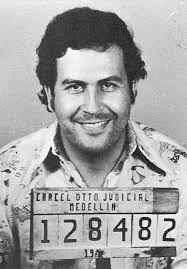Understanding Pablo Escobar and His Impact on Colombia

Introduction
Pablo Escobar remains one of the most notorious figures in modern history, best known for his role as the head of the Medellín Cartel. Born in 1949 in Rionegro, Colombia, Escobar’s life was marked by extraordinary wealth, violence, and ultimately, his fall from grace. His influence on the drug trade and Colombian society is still felt today, making an examination of his life relevant, especially in the context of current drug-related issues and crime in Colombia.
The Rise of an Empire
Escobar began his criminal career in the 1970s by engaging in petty crime, which soon escalated to drug trafficking. By the early 1980s, he had established the Medellín Cartel, which soon became a dominant force in cocaine production and distribution. At his peak, the cartel controlled over 80% of the cocaine smuggled into the United States, generating billions in revenue. Escobar’s vast wealth allowed him to wield immense power, influencing politics, law enforcement, and even building a housing complex for the poor, which garnered him popular support.
Violence and Corruption
As Escobar’s power grew, so did the violence associated with the cartel. The Medellín Cartel was known for its brutal tactics, including assassinations and bombings, to eliminate rivals and intimidate law enforcement. This culminated in the infamous 1989 bombings of various targets in Colombia, including the DAS headquarters, which killed over 100 people. Escobar’s ability to corrupt officials and police effectively made him untouchable for years. However, this cycle of violence ultimately turned public opinion against him, leading to increased governmental efforts to apprehend him.
Fall from Power and Legacy
In the early 1990s, after years of being pursued by authorities, Escobar was finally killed by Colombian National Police on December 2, 1993. His death marked a significant turning point in Colombia’s fight against drug trafficking. Although the Medellín Cartel was dismantled, other groups filled the power vacuum, suggesting that the struggle with drug-related crime is far from over. Today, Escobar’s legacy is complex; while many view him as a symbol of lawlessness and depravity, others remember his charitable acts and connections with the community.
Conclusion
The story of Pablo Escobar serves as a cautionary tale of how power and wealth can corrupt, influencing the very fabric of society. His life and death symbolize the ongoing challenges Colombia faces in combating drug-related violence and corruption. Moving forward, Colombia continues to address the issues rooted in Escobar’s era, seeking solutions to rebuild and deter future criminal empires. Understanding the past is crucial for forging a safer future, and Pablo Escobar’s story remains a potent reminder of the dangers posed by unchecked ambition in the drug trade.









